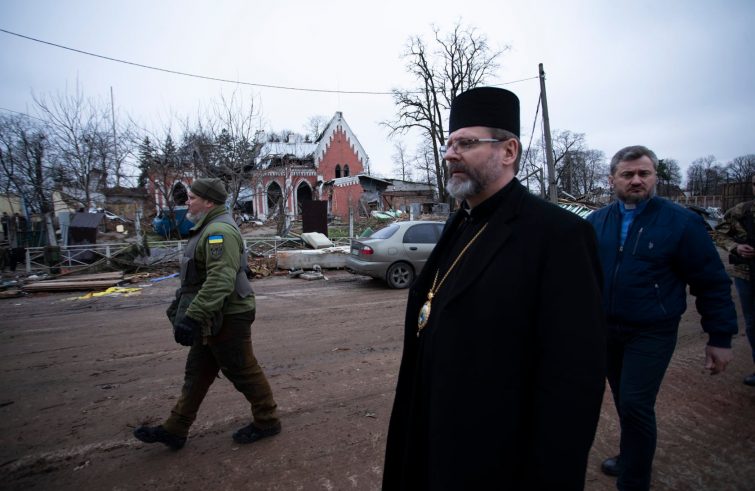
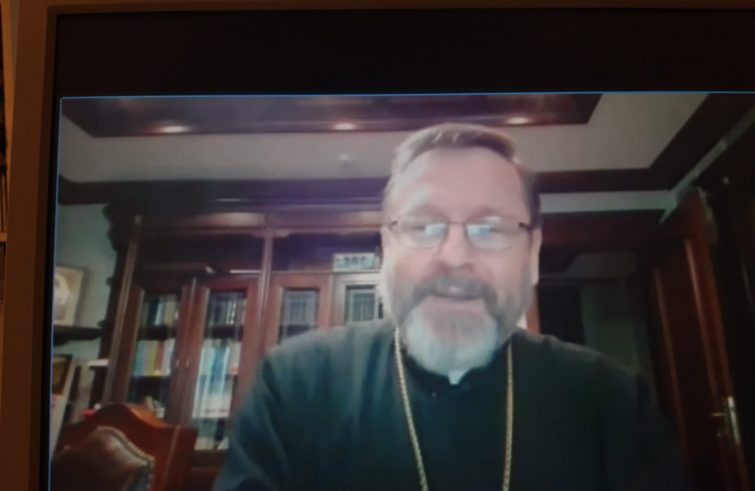 “We pray the Lord to listen to the suffering voices crying out from the Ukrainian land to the heavens. May the world not turn a blind eye to the wounds and sorrows of the Ukrainian people”, said H.B. Sviatoslav Shevchuk, Major Archbishop of the Ukrainian Greek Catholics, in an appeal sent out on the first anniversary of Russia’s large-scale invasion of Ukraine. Speaking on Monday 20 February with a group of Italian journalists connected via zoom, His Beatitude said: “We call on the world not to grow weary of this issue. So many times we see that the suffering caused by war is no longer in the news. It is not newsworthy. The same thing happened in 2014 when the Russian invasion began.”
“We pray the Lord to listen to the suffering voices crying out from the Ukrainian land to the heavens. May the world not turn a blind eye to the wounds and sorrows of the Ukrainian people”, said H.B. Sviatoslav Shevchuk, Major Archbishop of the Ukrainian Greek Catholics, in an appeal sent out on the first anniversary of Russia’s large-scale invasion of Ukraine. Speaking on Monday 20 February with a group of Italian journalists connected via zoom, His Beatitude said: “We call on the world not to grow weary of this issue. So many times we see that the suffering caused by war is no longer in the news. It is not newsworthy. The same thing happened in 2014 when the Russian invasion began.”
“We hope that the cry of our people will not be forgotten, and we hope that those who listen to us will not remain indifferent: we have seen that lies and indifference kill, in fact they lead to genocide.”
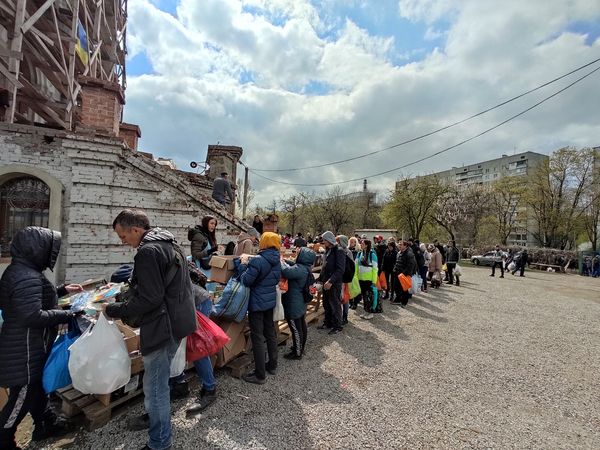 The Major Archbishop of Kyiv provided an “overview” of the Church’s role in assisting the population during this year of war. In Kharkiv, for example, one of the cities most badly hit by the Russian army, 40 kilometres from the border, food and relief packages for 3,000 people are distributed every day outside the Greek-Catholic cathedral. The same is done throughout the country. “Each of our parishes has become a community outreach centre. I am proud of my bishops and priests, monks and nuns – said Shevchuk – although “they feel disheartened by the stream of funeral services for civilian and military fatalities they celebrate continuously. However, our Church today is a small beacon of hope. This show of Christian solidarity, love and utter faith in the Lord, gives us reason for hope.” The world’s great powers have many peace proposals before them. Some are calling for the liberation of the occupied territories of Ukraine. Others call for a compromise or negotiated agreement. ” When I learn about these debates – His Beatitude remarked – a chill of pain runs through me, since for us, for the Church, it is not a question of territory, but of people, of our faithful”. Shevchuk noted that 17% of Ukrainian territory has been occupied by the Russian army, and pointed out that no Catholic priests are left there. Some were forced to leave, others were outright imprisoned.
The Major Archbishop of Kyiv provided an “overview” of the Church’s role in assisting the population during this year of war. In Kharkiv, for example, one of the cities most badly hit by the Russian army, 40 kilometres from the border, food and relief packages for 3,000 people are distributed every day outside the Greek-Catholic cathedral. The same is done throughout the country. “Each of our parishes has become a community outreach centre. I am proud of my bishops and priests, monks and nuns – said Shevchuk – although “they feel disheartened by the stream of funeral services for civilian and military fatalities they celebrate continuously. However, our Church today is a small beacon of hope. This show of Christian solidarity, love and utter faith in the Lord, gives us reason for hope.” The world’s great powers have many peace proposals before them. Some are calling for the liberation of the occupied territories of Ukraine. Others call for a compromise or negotiated agreement. ” When I learn about these debates – His Beatitude remarked – a chill of pain runs through me, since for us, for the Church, it is not a question of territory, but of people, of our faithful”. Shevchuk noted that 17% of Ukrainian territory has been occupied by the Russian army, and pointed out that no Catholic priests are left there. Some were forced to leave, others were outright imprisoned.
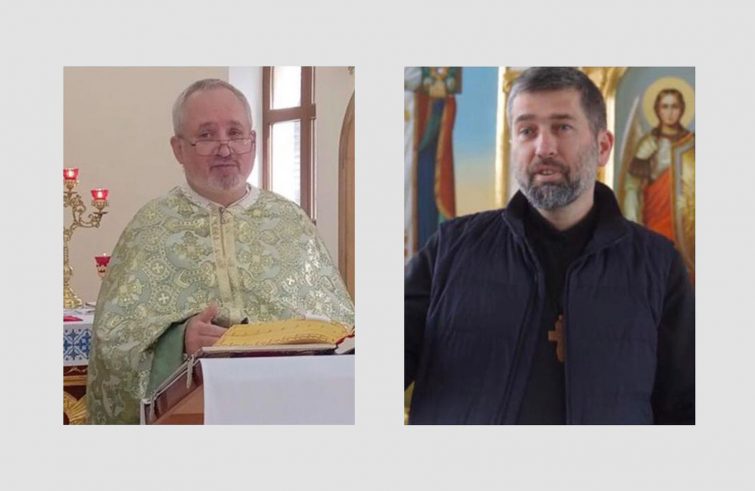 He refers to the two “heroic Redemptorist fathers”, Father Ivan Levytskyi and Father Bohdan Heleta, arrested on November 16 in the city of Berdyansk. “They have been subjected to daily torture for the past 100 days,” Shevchuk said. “No negotiation, no diplomatic action, no dialogue has managed to alleviate the pain of these two priests. And the suffering is only getting worse.”
He refers to the two “heroic Redemptorist fathers”, Father Ivan Levytskyi and Father Bohdan Heleta, arrested on November 16 in the city of Berdyansk. “They have been subjected to daily torture for the past 100 days,” Shevchuk said. “No negotiation, no diplomatic action, no dialogue has managed to alleviate the pain of these two priests. And the suffering is only getting worse.”
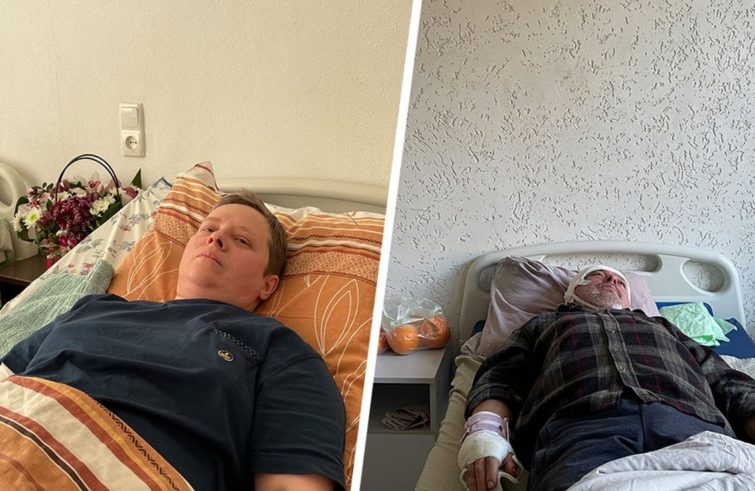 On the “list” of the wounds inflicted on the Greek Catholic Church by this war, figure a priest and a nun from the Exarchate of Kharkiv who were critically wounded while delivering humanitarian aid. A community of the Incarnate Word is living in an occupied city. “I can’t reveal the name of the city, because it would put their lives at risk.” They cannot exercise their ministry. They are in hiding “but they remain there and pray.” Seventeen Greek Catholic churches in the occupied territories have been damaged and destroyed, many of which have been abandoned. There is no one left even in the Donetsk Cathedral since mid-January, after the Christmas and Epiphany festivities.
On the “list” of the wounds inflicted on the Greek Catholic Church by this war, figure a priest and a nun from the Exarchate of Kharkiv who were critically wounded while delivering humanitarian aid. A community of the Incarnate Word is living in an occupied city. “I can’t reveal the name of the city, because it would put their lives at risk.” They cannot exercise their ministry. They are in hiding “but they remain there and pray.” Seventeen Greek Catholic churches in the occupied territories have been damaged and destroyed, many of which have been abandoned. There is no one left even in the Donetsk Cathedral since mid-January, after the Christmas and Epiphany festivities.
Joe Biden is currently in Kyiv, in the heart of the capital of Ukraine. The visit, kept confidential until the last minute, is taking place on the ninth anniversary of the Maidan revolution and on the eve of the day marking one year since Russia’s invasion. Archbishop Shevchuk makes no secret of being pleased. “The Russian army has sentenced us to death – he said – but the show of solidarity, confirmed also in the framework of these visits, is a sign of hope that that death sentence will not be carried out, and that we will be able not only to survive but also to defend ourselves and eventually build a free and democratic country.” The Greek-Catholic Archbishop sent out an appeal to the world leaders on their way to Ukraine, including Italian Prime Minister Giorgia Meloni: “‘Do not leave us alone, do not abandon us.” He recalled: “One year ago, at this very moment, all diplomatic representatives were leaving Kyiv. The same US administration was appealing to all its citizens to leave the territory of Ukraine. One year ago, on February 24, only two diplomatic representatives were left in Kyiv: the Apostolic Nuncio Archbishop Visvaldas Kulbokas and the Polish Ambassador. All the others had fled. A year later, not only has everyone returned, but even the president of the United States is here.”
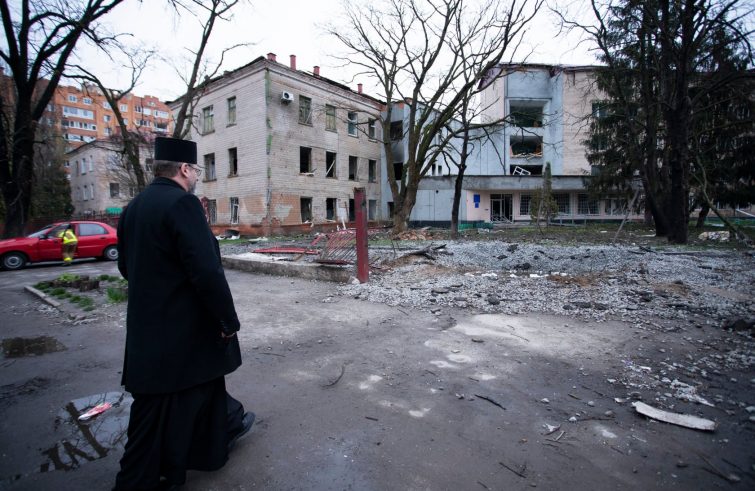 “The use of weapons testifies to modern societies’ powerlessness in preventing and stopping a war.” His Beatitude addressed also the issue of supplying Ukraine with weapons, at the heart of political debates, remembering that, “the looming shadows of war” were already on the horizon at the end of 2021. “I tried to make numerous institutions aware of this danger, but unfortunately neither the instruments of international law, nor those of diplomacy and not even negotiations could prevent this tragedy. Today the whole world feels powerless in the face of this insane, absurd and blasphemous war.” Turning to the ‘proportionate use of weapons’, the Archbishop remarked: “what we have seen until now is that the Russian military’s shelling and use of weapons exceeds the armed response of the Ukrainian army by a far greater degree. Ukraine’s ability to defend itself is nowhere commensurate with the Russians’ aggression and attack capacity.” Therefore, “the Pan-Ukrainian Council of Churches considers it morally acceptable to send weapons to Ukraine as a means to increase its self-defence capacity. These weapons are for defence, not for aggression.”
“The use of weapons testifies to modern societies’ powerlessness in preventing and stopping a war.” His Beatitude addressed also the issue of supplying Ukraine with weapons, at the heart of political debates, remembering that, “the looming shadows of war” were already on the horizon at the end of 2021. “I tried to make numerous institutions aware of this danger, but unfortunately neither the instruments of international law, nor those of diplomacy and not even negotiations could prevent this tragedy. Today the whole world feels powerless in the face of this insane, absurd and blasphemous war.” Turning to the ‘proportionate use of weapons’, the Archbishop remarked: “what we have seen until now is that the Russian military’s shelling and use of weapons exceeds the armed response of the Ukrainian army by a far greater degree. Ukraine’s ability to defend itself is nowhere commensurate with the Russians’ aggression and attack capacity.” Therefore, “the Pan-Ukrainian Council of Churches considers it morally acceptable to send weapons to Ukraine as a means to increase its self-defence capacity. These weapons are for defence, not for aggression.”









